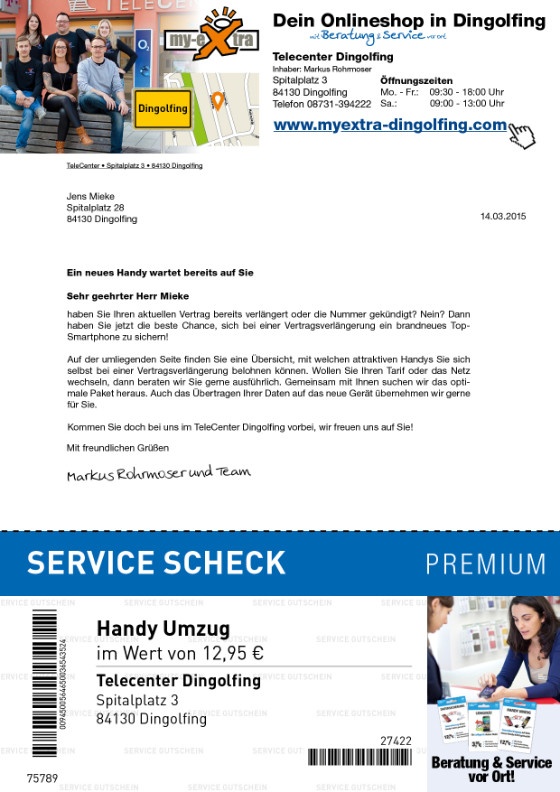Languages
Contact
CONTACT - 0049 9133 7770-800
Loyalty progammes in retail

Dominik Brokelmann, CEO
Successful customer loyalty programmes are commonplace in the market, in particular with airlines, hotels and banks. These are very different in structure from the concepts available from brick and mortar retailers. Loyalty to airlines and hotels is rewarded above all with status and not with discounts, as is usually the case in the retail sector. A “frequent traveller” of an airline or the “ambassador” of a hotel chain does not receive any discounts when making a booking. Regular customers of airlines and hotels often even pay more than average customers, as they book a higher category or class. Depending on the status (Frequent Traveller, Senator, Honorary Member), airlines often grant access to exclusive additional services. This is for example the lounge, which is available to these customers as an exclusive waiting area until they can board their flight, or in the case of the ambassador, a room which is always one category higher than the booked category and access to an exclusive lobby or lounge.
Discount schemes do not create customer loyalty
In the retail sector, such loyalty programmes are usually discount sticker campaigns: every tenth pizza is free of charge, or loyalty points can be collected before being redeemed to purchase a torch or another product from the range at a discount. The worst option of all is to send a shopping voucher at the end of the year in return for the purchases made at the retailer. Another concept I find very poor is Payback, a point collection scheme popular in Germany. The name itself is awful. On the one hand, everyone knows that the value you are paid back does not bear any relation to the turnover you have to make with Payback. There can be no question of this being a “pay back” in the real sense of the word. In addition, I as a retailer share this discount system with many other retailers and do not increase loyalty to my business, which is what I actually set out to achieve. Furthermore, Payback costs retailers a real margin, which they then have to calculate into the retail price. Customers do not receive any improved service, but simply collect points which are then redeemed elsewhere. On the topic of status, all I can say is that with this system quite the opposite is the case. Whenever I see a Payback card, I am surprised every time that customers let themselves be spied on in return for a few points from Payback.
Up until now, no status programmes have been available in the retail sector
Loyalty programmes based on status are not available in the retail sector. However, a “frequent shopper checkout” without waiting times could be set up for example in DIY stores, at which only professional “status customers” (tradesmen and DIY enthusiasts) could pay without having to wait. I am sure that this would also be accepted by other customers. After all, these are professional tradesmen who have no time to lose and have to get back to the building site quickly. These customers are therefore allowed to pay at the “professionals checkout”. That might even impress the less regular customers of the DIY store. If even professionals purchase their materials here, then the DIY store must offer a professional product range and very competitive prices. As a further service for status customers, these customers could perhaps be able to upgrade hired machines from any one category or keep them one day longer.
Status can also be offered for purchase. For example, the airline AirBerlin offers a service card for 119 euros a year, which then entitles the holder to free seat reservations, free transport of sport equipment and a more generous luggage allowance. Amazon Prime is another example of a status which can be purchased.
We ourselves have introduced a service card into our own franchise chain, launching a programme which boosts customer loyalty thanks to status and related exclusive services. We are not yet finished and are continuing to work on developing the positioning of this service card.
Status and service as added value with service cheque
Loyalty programmes offering status and services as added value offer huge opportunities for brick and mortar retailers in particular. Brick and mortar services which cannot be offered by online retailers can be used as an instrument to boost customer loyalty. These services ought to be advertised in the online channels as well, in order to redirect customers from placing an order online to placing an online order with brick and mortar retailers.

For some time now we have been using vouchers which do not offer any discount or cash value as savings. Instead, the customer can use the voucher to get a specific service at a discount or free of charge from the retailer. We call this type of voucher “Service Cheque”. For example, the retailer can send a circular to all customers who are due to renew their contracts, giving them a voucher to the value of 14.99 euros for a “mobile phone transfer service”, in which data is transferred professionally from the old device to the new one. This coupon can then be redeemed in store, provided the customer purchases a new mobile phone from this store in the next six weeks. Services which are presented transparently in this way are well suited to being used in loyalty programmes. In other words, customers are rewarded for their loyalty with additional services without any extra costs, making them into customers who regularly make purchases.
This is an area particularly well suited to specialist retailers, who already offer services of this nature which are required by customers, and it means the retailers do not have to deal with discounts.
Tuesday, 2. June 2015 -14:46
COMMENTS































